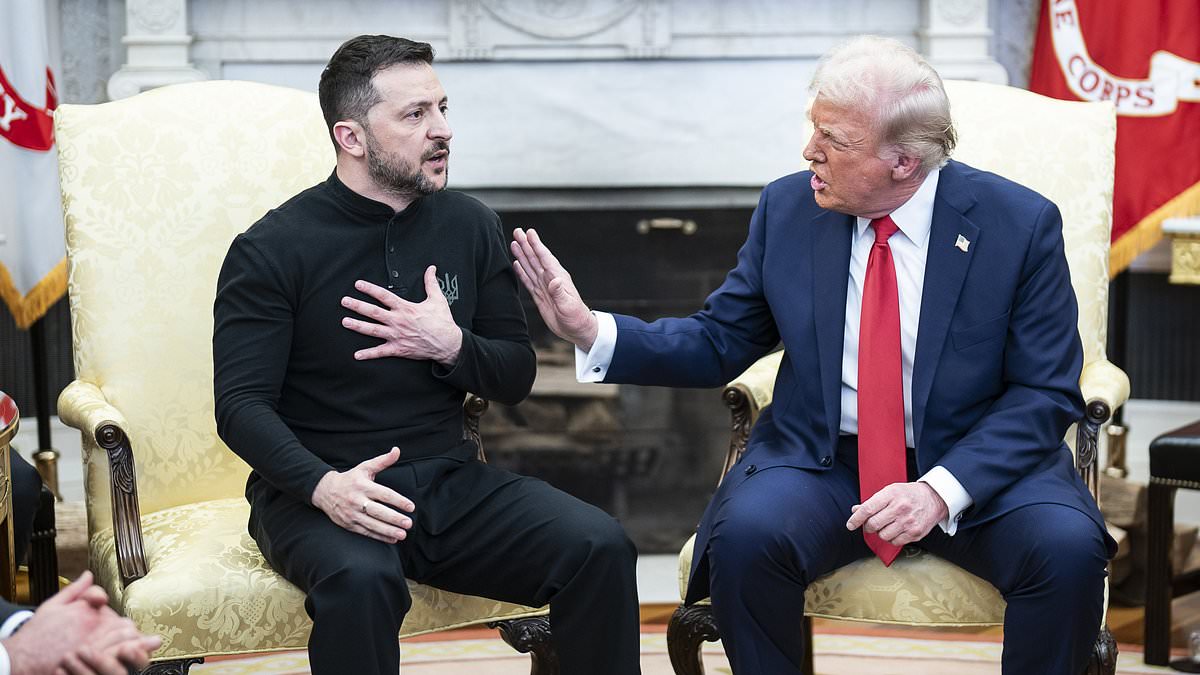
The highly anticipated meeting between Ukrainian President Volodymyr Zelensky and former U.S. President Donald Trump has sparked new debates over the ongoing Ukraine-Russia conflict. As Zelensky visits Washington D.C. for the first time since their contentious February meeting, he is joined by major European allies, including the UK’s Keir Starmer, France’s Emmanuel Macron, and Germany’s Friedrich Merz, in a bid to solidify global support against Russian aggression.
Trump’s Peace Proposal and Zelensky’s Rejection
On Sunday evening, Trump took to social media to propose what he called a fast solution to the war: surrendering Crimea to Russia and halting Ukraine’s bid to join NATO. Trump stated, “President Zelensky of Ukraine can end the war with Russia almost immediately, if he wants to.” However, Zelensky quickly countered these remarks, emphasizing that the war was triggered by Russian aggression. “Ukrainians are fighting for their land and independence,” Zelensky wrote, pointing to victories in Donetsk and Sumy regions as evidence of Ukraine’s resilience.
Zelensky also rejected the notion of sacrificing Crimea, arguing that similar compromises in the past only prolonged Russian hostilities. “Crimea should not have been given up then, just as Ukrainians did not give up Kyiv, Odesa, or Kharkiv after 2022,” he said. His remarks highlighted Ukraine’s persistence in defending its sovereignty despite escalating pressure.
Escalating Attacks in Ukraine
While diplomatic talks dominate headlines, the reality on the ground remains grim. Overnight missile and drone strikes hit Kharkiv and Sumy, killing several civilians, including a two-year-old boy, and leaving dozens injured. Emergency responders were seen pulling people from rubble as the attacks left homes and infrastructure destroyed. Regional officials in Kharkiv confirmed three deaths and ongoing rescue operations as authorities feared more people could still be trapped.
Kharkiv has been under relentless assault since Russia’s full-scale invasion began in February 2022. The recent escalation underscores the urgency of peace negotiations, but both sides remain far apart on terms.
European Leaders Rally Behind Zelensky
European leaders have voiced their support for Zelensky ahead of his pivotal meeting with Trump. French President Emmanuel Macron emphasized the importance of collective strength, stating, “If we’re not strong today, we’ll pay dearly tomorrow.” Macron, along with leaders from Italy, Finland, and Germany, aims to ensure that Ukraine’s position is not undermined during negotiations.
This unified front is intended to prevent a repeat of the February Oval Office confrontation, during which Trump reportedly berated Zelensky over Ukraine’s requests for support. The European leaders’ presence in Washington signals their desire to maintain robust backing for Ukraine amidst concerns over potential shifts in U.S. policy.
Ongoing Peace Challenges
Following a recent Alaska summit between Trump and Russian President Vladimir Putin, hopes for a ceasefire have largely faded. Instead, discussions have leaned toward territorial concessions, with Russia pushing for control over parts of the Donbas region and other strategic areas rich in resources. Zelensky has opposed such compromises without a prior ceasefire, arguing that any agreements made under ongoing attacks would be unsustainable.
Despite international pressure, Zelensky remains committed to defending Ukraine’s territorial integrity. “It’s impossible to negotiate peace under the pressure of weapons,” he said. The stakes at Monday’s meeting couldn’t be higher, with potential implications for American and European responses to the conflict.
Explore the Talks: Related Product for Advocacy
If you’re following this crucial moment in global politics, consider educating yourself more broadly about global diplomacy. The highly-acclaimed book “Destiny of the Republic” by Candice Millard explores historical leadership challenges and global decision-making dynamics, perfect for understanding how pivotal moments like this shape the future.



